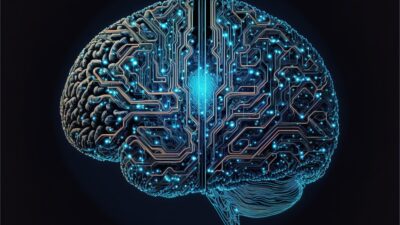As artificial intelligence (AI) becomes increasingly woven into the fabric of everyday life, it raises profound ethical dilemmas that society must confront. From autonomous vehicles to facial recognition technology, the applications of AI promise significant advancements, yet they also spark critical concerns regarding morality, equity, and the future of humanity. Navigating this complex moral landscape is essential for ensuring that technology serves the greater good.
The Nature of Ethical Dilemmas in AI
At its core, ethical dilemmas in AI involve conflicts between competing moral principles. These conflicts often arise from three main areas:
-
Accountability: Who is responsible when AI systems cause harm? Should accountability lie with the developers, the users, or the AI itself? For instance, if an autonomous vehicle is involved in an accident, the question arises: is the car manufacturer, the software creator, or the user to blame? This ambiguity complicates the legal landscape and demands clear frameworks for accountability.
-
Bias and Fairness: AI systems learn from data, and if that data is biased, the algorithms will mirror those biases, resulting in unfair treatment of certain groups. There are numerous cases where AI systems used in hiring, law enforcement, or lending decisions have perpetuated racial or gender biases. Addressing these issues is crucial for creating fair and equitable AI systems.
- Privacy and Surveillance: The capabilities of AI in data collection and analysis allow for unprecedented levels of surveillance. This raises questions about individual privacy rights and the ethical implications of monitoring by governments or corporations. The balance between security and personal freedom is a delicate one that society must navigate.
Real-World Implications
The ethical dilemmas in AI are not merely theoretical. They have real-world consequences that affect lives, communities, and entire societies. Here are some key examples illustrating these dilemmas:
Autonomous Vehicles
As self-driving cars become more commonplace, scenarios requiring split-second ethical decisions emerge. The famous "trolley problem"—where a vehicle must choose whether to hit pedestrians or sacrifice its passengers—poses challenges that engineers and policymakers must consider. How do we encode moral values into algorithms, and who decides what those values should be? The absence of consensus on these ethical standards can lead to significant societal implications.
Facial Recognition Technology
Facial recognition systems have become integral in law enforcement and security. While these technologies can enhance public safety, they raise ethical concerns related to privacy, consent, and potential misuse. Reports of disproportionate targeting of marginalized communities through biased facial recognition systems further complicate the issue. Ensuring these technologies are used fairly and transparently is a pressing moral concern.
AI in Healthcare
AI holds tremendous potential in healthcare, from predictive analytics to patient diagnostics. However, ethical dilemmas arise concerning data privacy, informed consent, and the reliance on algorithms for critical decision-making. For example, how do we ensure that AI-driven decisions are equitable and do not reinforce existing disparities in healthcare access?
Navigating the Moral Landscape
To address the ethical dilemmas posed by AI, a multi-faceted approach is required:
-
Stakeholder Engagement: Involving various stakeholders—developers, ethicists, policymakers, and affected communities—in the design and deployment of AI systems can foster greater accountability and transparency.
-
Ethical Guidelines and Regulations: Establishing clear ethical guidelines and regulatory frameworks can help navigate the complexities of AI. Initiatives like the European Union’s GDPR and the development of AI ethics boards can provide guidance on proper practices.
-
Education and Awareness: Raising awareness about the ethical implications of AI among technologists, business leaders, and the general public can promote a more informed discussion about the values we wish to prioritize in technology.
- Interdisciplinary Collaboration: Bringing together experts from diverse fields—such as law, philosophy, sociology, and computer science—can lead to more nuanced understanding and better solutions to ethical challenges.
Looking Forward
The rapid advancement of AI brings both opportunities and challenges. As we navigate the moral landscape of technology, it is essential to strike a balance between innovation and ethical responsibility. Embracing a culture of ethical vigilance can help ensure that AI serves humanity positively, safeguarding against potential harms while harnessing its transformative potential for societal good.
In conclusion, the ethical dilemmas in AI compel us to reflect on our values and the kind of future we want to create. By engaging in thoughtful dialogue, implementing robust regulations, and prioritizing fairness and accountability, we can chart a path through the complexities of AI, ultimately leading to technology that enhances human life rather than diminishes it.



